Pterygoid implants provide potential benefits that may support oral function. Here's how they create an impact:
.svg)
.svg)
.svg)
.svg)
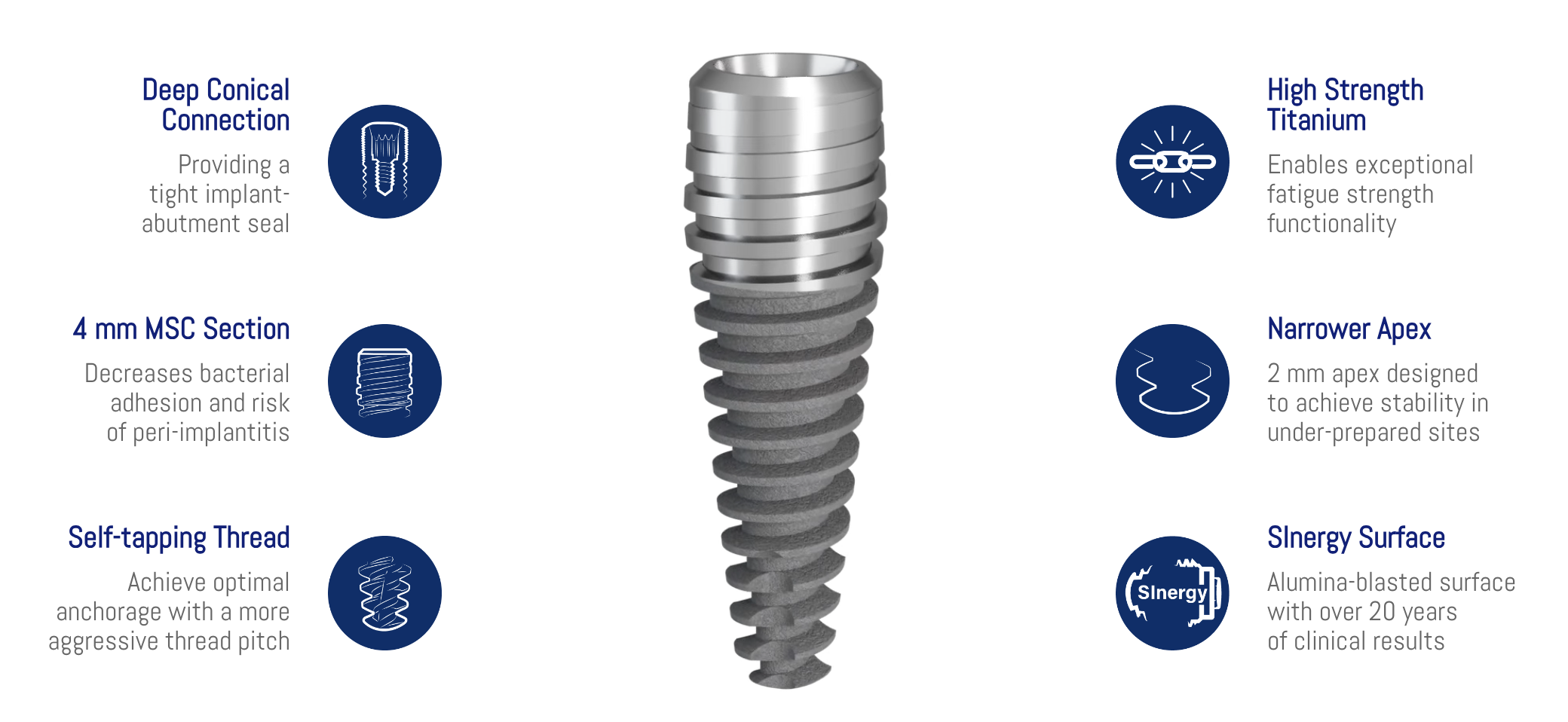
What are Pterygoid Implants?
Pterygoid implants are specialised dental devices that anchor securely into the pterygoid plate, a strong section of the sphenoid bone found at the back of the upper jaw. They are called 'Pterygoid' because they are particularly situated on the pterygoid plate.
Conventional dental implants may not be an option for those with substantial bone loss in their upper jaw. This is where Pterygoid implants come in. These implants, which are typically longer than traditional ones, measuring between 15 and 20 millimetres, are deliberately put in the pterygoid plate—a bone that is usually unaffected by bone loss that limits other locations for implant placement. Their greater length may contribute to stability by engaging denser bone.
Unlike traditional implants, which require a considerable bone basis and may require complex operations like as bone grafts or sinus lifts, Pterygoid implants make use of the natural strengths of your jaw's deep bone structure. This careful placement may reduce the need for additional procedures, and may shorten the overall treatment timeline in selected cases.
Behind every smile is a unique story. At Nuffield Dental, pterygoid implants are offered as one of the treatment options for patients requiring posterior upper jaw rehabilitation, based on individual clinical assessment.
Quick Links
How do Pterygoid Implants work?
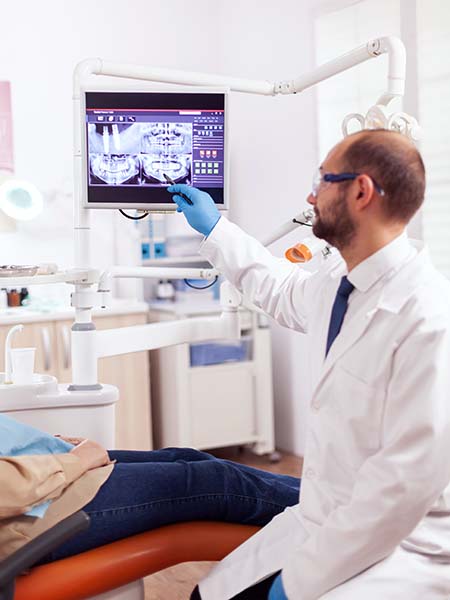
How do Pterygoid Implants work?
Pterygoid implants are a potential option for patients who are unable to use standard dental implants due to bone loss in the upper jaw. Here's a simple explanation of their placement and functionality:
- Angled Placement: These implants are inserted at an angle into the pterygoid plate, a section of the jawbone located near the back of the mouth. This angle allows the implant to anchor more securely, even when other regions lack adequate bone.
- Longer Implants for Better Grip: Pterygoid implants are longer than usual and go deeper into the bone. This increased length allows them to cling on tightly, designed to provide enhanced anchorage and may support early loading in suitable cases, depending on clinical factors.
- Immediate Use: One of the most significant benefits of these implants is that they may allow for early functional loading in selected cases.
Once the implant is in place, it gradually fuses with the natural bone through a process called as osseointegration. This integration is critical because it helps establish long-term anchorage within the jawbone, laying a solid foundation for your new teeth.

Pterygoid Implants Benefits
Long-term stability
Pterygoid implants are intended to support long-term restoration for tooth loss. They fuse with your bone, creating a secure and long-lasting framework for prosthetic teeth. This integration aims to provide functional support comparable to natural teeth, giving you confidence in your smile and allowing you to eat and speak freely.
Contact us to arrange a consultation for assessment.
Who Needs Pterygoid Implants?
Apart from individuals who don’t meet the requirements for standard dental implants, you might benefit from Pterygoid implants if you fit into any of these categories:
- Individuals with Loose Dentures or Ill-Fitting Bridges: Pterygoid implants provide fixed support, relieving the discomfort and problems associated with poorly fitting dental equipment.
- Patients Prefer Non-removable Teeth: These implants are ideal for people looking for a long-lasting, fixed treatment. They mimic the feel and functioning of real teeth, improving overall quality of life without the drawbacks of detachable prosthesis (a dental appliance that replaces a missing tooth or covers up tooth defects).
- Those Seeking an Alternative to Complex Operations: A good choice for anyone who wants to avoid extra surgical procedures like bone grafts or sinus lifts, which are frequently required when inserting conventional implants. Pterygoid implants may be considered a less invasive option in suitable cases.
Our team is available to provide you with a personalised assessment. Contact Nuffield Dental today to see if you’re a good fit for Pterygoid implants.
Who Needs Pterygoid Implants?

Pterygoid Implants Suitability Assessment
During your consultation, you will receive a evaluation of your oral health, opening up a conversation between you and your dentist about the best treatment options for you.
We'll begin by evaluating your medical and dental history, then conduct a gentle, thorough oral examination. This could include X-rays or 3D imaging to carefully evaluate your bone structure and determine whether you’re a good fit for Pterygoid implants.
Your dentist will next take the time to thoroughly explain the treatment, emphasising the benefits and discussing any potential risks and complications. This is an excellent moment to ask any questions you may have; we are here to make sure you are completely informed. We'll also go over the cost of the surgery and the financing alternatives available, so you can plan accordingly.
Visual references may be discussed during consultation, in accordance with applicable guidelines.
Remember that the consultation is more than just organising your treatment; it is also about ensuring that you are confident and at comfortable with your decision. We’re all here to help you achieve a healthier and brighter smile.
Pterygoid Implants Suitability Assessment
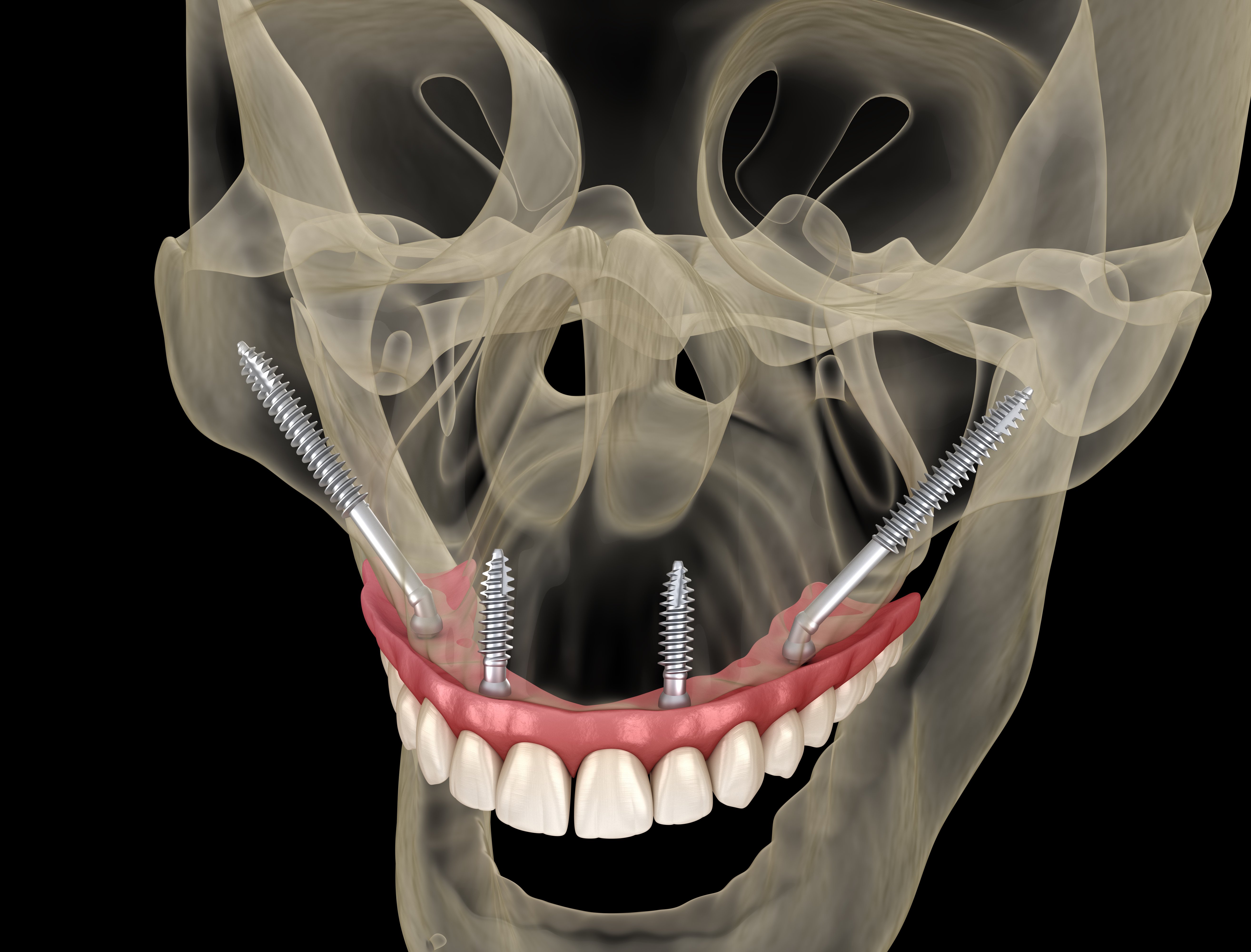
All On 4 Dental Implants And Pterygoid Implants
The All On 4 dental implant is a comprehensive approach for replacing a whole arch of teeth with only four carefully placed implants. However, for individuals with substantial bone loss in the upper jaw, more support may be required, particularly in the back of the mouth where bone density can be low.
This is where Pterygoid implants come in. Pterygoid implants function in synergy with the All On 4 method, leveraging the denser bone in the pterygoid plate to hold implants even in cases of substantial bone loss, which may reduce the need for bone grafting in selected cases.
Key Benefits of Combining All-On-4 with Pterygoid Implants:
- Cantilevers are eliminated: Traditional All-On-4 designs frequently include cantilevers, which stretch the rear teeth beyond the posterior-most implants, potentially putting too much force on the front implants during chewing. Pterygoid implants provide direct support for these rear teeth, avoiding the need for a cantilever. This results in a more equal distribution of chewing forces, improved prosthesis stability and strength, which may help distribute functional load more evenly.
- Immediate Loading: Both procedures are intended for immediate functionality, providing patients with a full set of teeth immediately following implant implantation.
- Streamlined Procedure: By omitting bone grafts, the surgery becomes less complex, with a shorter recovery period and lower overall expenditures.
Pterygoid Implants vs Zygomatic Dental Implants
Length:
While Pterygoid implants are usually 15 to 20 millimeters long, Zygomatic implants can range from 30-50 millimeters.
Surgical complexity and recovery:
Pterygoid implants are often less sophisticated surgical procedures than Zygomatic implants, with the potential for potentially shorter recovery periods in some cases. This is due to their placement in locations that typically require less surgical preparation and change. Zygomatic implants necessitate a more complex surgical procedure because they must reach from the jaw to anchor securely in the cheekbone. This can result in a longer surgical procedure and a longer recuperation period.
Ideal candidates:
Pterygoid implants are suitable for patients who have experienced significant bone loss but still retain some bone in the pterygoid region. Zygomatic implants are a great option for patients who have experienced significant bone loss, including in the pterygoid region. In these cases, zygomatic bones can be a suitable alternative for supporting dental implants.
Both pterygoid and zygomatic implants are effective solutions for restoring smiles and oral function, especially in cases of severe bone loss. Here at Nuffield Dental, we will help you determine which option is best suited to your needs, ensuring the best possible outcome in the long run.
Placement and Bone Requirements:
Pterygoid implants are often a good option because this area tends to have enough bone density, even if other parts of the jaw don't. These implants are suitable for individuals who have experienced bone loss in the maxillary region but still have some bone structure remaining in the back of the jaw. Zygomatic implants are surgically placed into the zygomatic bone, which is commonly referred to as the cheekbone. When there is significant loss of bone in the upper jaw, the zygomatic bone becomes the only viable option for implantation.
Functional and aesthetic outcomes:
Pterygoid Implants are very useful for stabilising dentures in the upper jaw and can be used in conjunction with regular implants for full restoration. Zygomatic Implants are frequently utilised in whole arch rehabilitation situations, offering a graft-free option for patients with substantial bone loss who prefer fixed prosthetic solutions.

Pterygoid Implants Risks
Implant Failure
For pterygoid implants, generally favourable clinical outcomes have been reported. However, there is a tiny risk of implant failure due to poor osseointegration. If this occurs, the implant may become loose, necessitating removal or replacement. Furthermore, because they are placed at the upper wisdom tooth region, pterygoid implants require a large interarch space (the space between the upper and lower teeth) for a proper fit. Limited space can make it difficult to set the implant and ensure there is enough area for a properly fitting crown.
No treatment is 100% risk-free. Nuffield Dental is clear on the risks involved with every procedure. A pre-surgical assessment is conducted to identify relevant risk factors. This includes our rigorous pre-surgical exams allow us to identify and manage any potential risk factors unique to each patient.
Schedule an appointment with our dentists to find out how we can help you.
Pterygoid Implants Complications
- Nerve Damage & Numbness: There is a slight risk of injuring adjacent nerves during implant insertion, which may cause temporary or, in rare circumstances, permanent numbness or tingling in the area. Accurate imaging and careful surgical techniques help prevent this complication from happening.
- Chronic discomfort: In rare situations, individuals may develop persistent discomfort at the implant site. This could be due to tissue irritation or faulty implant-bone integration. Your dentist should analyse any persistent discomfort to identify the best course of action.
- Prolonged Numbness or Tingling: If neighbouring nerves are damaged during the surgery, some patients may feel persistent numbness or tingling in their jaw, lips, or cheeks. While this is usually brief, in rare circumstances it may persist and necessitate additional medical attention.
- Sinus Issues: Because the pterygoid plate is so close to the sinus cavities, the implant has the potential to induce sinus problems such as chronic sinusitis (long-lasting inflammation of the sinuses, causing symptoms like nasal congestion, pain, and difficulty breathing) or sinus perforation (a small hole between your sinus and mouth that can lead to discomfort, damage, or sinus drainage). This may demand extra treatment to maintain sinus health.
- Implant Fracture or Loosening: Over time, and especially without proper care, the implant may fracture or loosen, jeopardising its stability and function. Regular dental check-ups are necessary to ensure the implant's stability.
To prevent these complications from happening, it’s important to choose a skilled dentist. At Nuffield Dental, procedures are performed by registered dentists with relevant clinical experience.
Pterygoid Implants Cost in Singapore
Cost Breakdown:
Pterygoid implant fees consist of multiple treatment components and may vary based on clinical needs.- Initial consultations: SGD 50 to SGD 150.
- X-rays and scans: SGD 200 to SGD 500.
- Implant Surgery: SGD 1,500 to SGD 3,000.
- Crown and Abutment (connecting element that secures implants in place): SGD 750 to SGD 2,350
Total fees are confirmed after a dental assessment and review of diagnostic findings.
*All fees are subject to prevailing Singapore Goods and Services Tax.
*Fee adjustments may apply depending on the number of teeth treated.
The total cost depends on factors such as:
- Clinic Location: Clinics in the city/CBD may charge higher than those in heartland areas.
- Dentist Experience: Experienced dentists and specialists may charge a premium.
- Materials Used: The quality of the implant materials can influence the final cost.
- Additional Procedures: Additional procedures, such as bone grafts, can raise the overall cost.
- Managing costs: Pterygoid implants are often more expensive than normal implants due to their intricacy, but many clinics offer payment options to help manage the cost. It's also worth checking to see if your private insurance covers part of the surgery.
Are There Subsidies For Pterygoid Implants In Singapore?
Pterygoid implants are currently not covered by government subsidies in Singapore. This implies that patients often have to pay for the entire surgery out of pocket.
We understand that the cost of dental implants might be an issue, especially when no subsidies are available. Payment arrangements may be discussed during consultation.
To learn more about your payment options, reach out to our team.
Are There Subsidies For Pterygoid Implants In Singapore?

Why Choose Nuffield Dental For Pterygoid Implants?
Advanced Technology: Across our 11 dental clinics, we use technology such as 3D Cone Beam Computed Tomography (CBCT) to support clinical planning at every stage of the implant process. This imaging technique delivers thorough, three-dimensional views of the jawbone, assisting with implant assessment and placement, even in cases with low bone density.
Personalised Treatment: Nuffield Dental's 4.8 ★ average Google rating reflects our commitment to delivering attentive, patient-centered care. We take the time to listen to your issues, answer your questions, and develop a treatment plan that works for you. Your comfort and pleasure are always our top priority.
Fill out this booking form to schedule a no-obligation appointment with our dentists.
FAQs About Pterygoid Implants
What is the Success Rate of Pterygoid Implants?
Pterygoid implants have a success rate of about 90-95%, depending on your dental health, the surgeon's experience, and how well you follow post-operative care guidelines.
Are Pterygoid Implants Painful?
The technique is often well tolerated with local anaesthesia, which reduces discomfort during surgery. Pain following the treatment is typically moderate and can be treated with over-the-counter pain relievers.
What are the Advantages of Pterygoid Implants Over Traditional Implants?
Pterygoid implants offer excellent stability without the requirement for bone grafting, especially in locations with low bone density. This frequently leads to a shorter treatment time than standard implants.
How Long Does the Procedure for Pterygoid Implants Take?
The surgery usually takes 1 to 2 hours and is done under local anaesthesia. Most people heal rapidly and return to normal activities within a few days.
Where are Pterygoid Implants Placed?
Pterygoid implants are put in the thick bone at the pterygoid plates at the back of the upper jaw to provide stable support when standard implants are insufficient.
How do I Care for Pterygoid Implants After Surgery?
To guarantee optimal healing and long-term success with your Pterygoid implants, practise good oral hygiene, avoid hard foods that may stress the implants, and follow your dentist's advice.
Medical References
Araujo, Rafael Zetehaku, et al. “Clinical Outcomes of Pterygoid Implants: Systematic Review and Meta-analysis.” Journal of Cranio-Maxillofacial Surgery, vol. 47, no. 4, Apr. 2019, pp. 651–60, doi:10.1016/j.jcms.2019.01.030.
Gaur, Vivek, et al. “Multiple Pterygoid Approach: A Novel Technique With Single-piece Implants.” National Journal of Maxillofacial Surgery, vol. 13, no. 4, Jan. 2022, p. 228, doi:10.4103/njms.njms_137_20.
Our Team
View MoreAt Nuffield Dental clinic, your dental needs are cared for by our dedicated team of dentists.
The Nuffield Dental Clinic Network In Singapore
Seletar Dental
Nuffield Dental Seletar
Greenwich V
1 Seletar Road #01-07/08
Singapore 807011

Kovan Dental
Nuffield Dental Kovan
Simon Plaza
2 Kovan Road #01-03
Singapore 548008

Serangoon Dental
Nuffield Dental Serangoon Gardens
Serangoon Garden Estate
57 Serangoon Garden Way
Singapore 555953

Siglap Dental
Nuffield Dental Siglap
The Domain
914 East Coast Road #01-03
Singapore 459108

Bedok Dental
Nuffield Dental Simpang Bedok
East Village
430 Upper Changi Road #01-64
Singapore 487048

Holland Village Dental
Nuffield Dental Holland Village
7 Holland Village Way #03-16
Singapore 275748

Jurong East Dental
Nuffield Dental Westgate
Westgate
3 Gateway Dr #04-32
Singapore 608532

HarbourFront Dental
Nuffield Dental HarbourFront
HarbourFront Centre
1 Maritime Square #02-64A
Singapore 099253

Orchard Dental
Nuffield Dental Jewel
Wheelock Place
501 Orchard Road #05-01
Singapore 238880

Raffles Place Dental
Nuffield Dental Raffles Place
One Raffles Place
1 Raffles Place #05-19
Singapore 048616


Why Choose Nuffield Dental For Pterygoid Implants?
Fill out the form for any request or questions you have and we will contact you within one working day..


Why Choose Nuffield Dental?
Nuffield Dental is a one-stop, multi-disciplinary dental care centre. At Nuffield, we put you first. We believe in providing personalised service for each patient.
Nuffield Dental is a one-stop, multi-disciplinary dental care centre. Here at Nuffield Dental, we pride ourselves of our personalised oral care for each and every one of our patients. We need to make sure you get all the help you need to make your dental procedures comfortable, accessible and seamless.
Our dentists have specialised in implant dentistry and oral surgery for 20+ years. We have accredited dental providers who are skilled in the area of dental implant surgery.
Articles
The newest and best lifestyle articles selected by our editorial team.

- 17 Nov 2025
- 2 mins read
Current scientific evidence does not show a conclusive connection between intact dental amalgam fillings and symptoms such as brain fog, chronic...

- 17 Nov 2025
- 2 mins read
The Minamata Convention on Mercury established 2034 as the global target year to end the use of dental amalgam. While this may seem gradual, the...

- 17 Nov 2025
- 2 mins read
Dental amalgam has been used in restorative dentistry for more than 150 years. It has long been regarded as a durable and practical material....
Videos
The latest videos selected by our editorial team.

Dr. Kumar of Nuffield Holdings, alongside Dr. Carlos Aparicio (ZAGA Center Barcelona) and Dr. Adi Lorean (ZAGA Center Tel Aviv), shares insights from...
.png?width=2223&height=447&name=Background%20(4).png)





%20.jpg?width=350&height=350&name=LONGEVITY%20PACKAGE%20(Dental)%20.jpg)


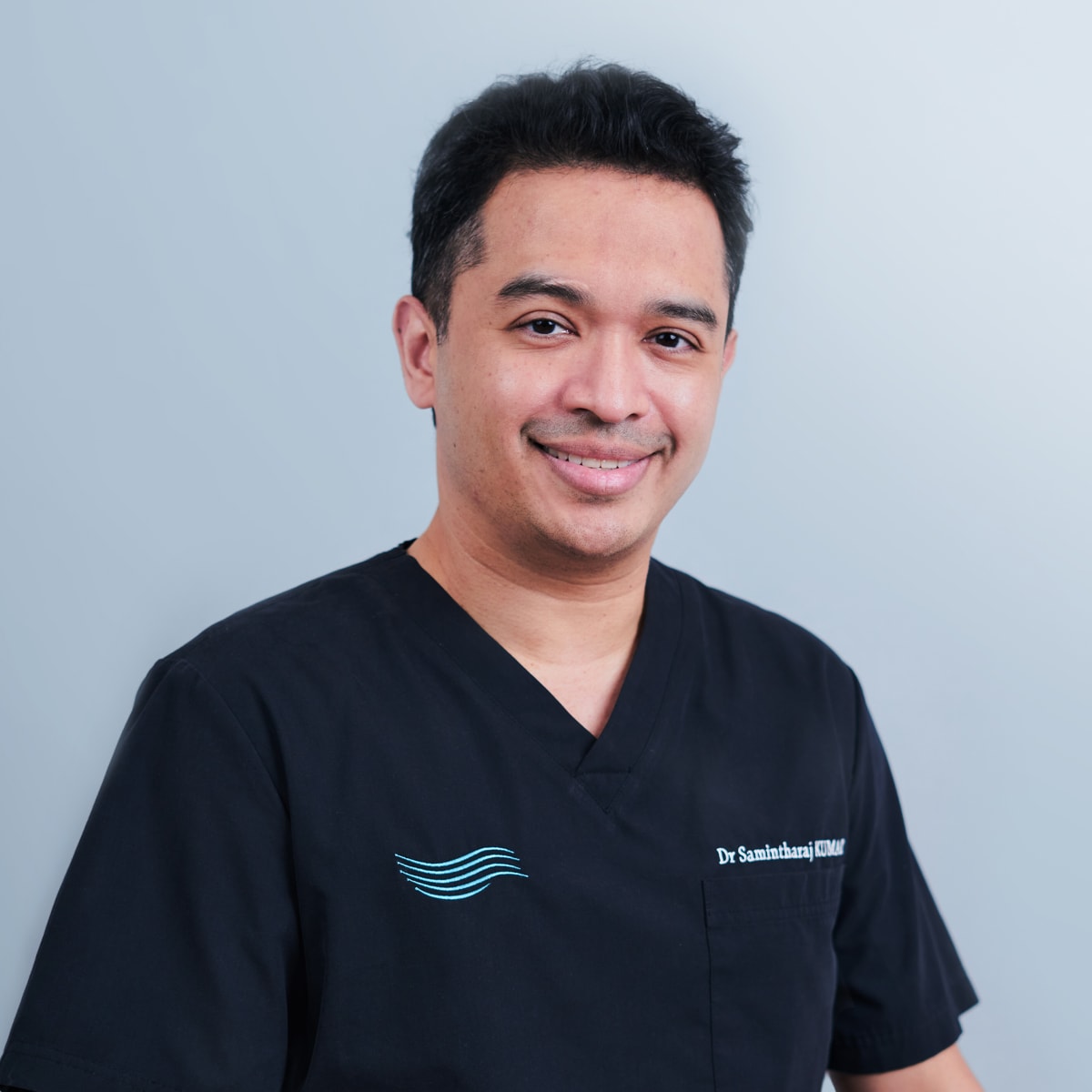

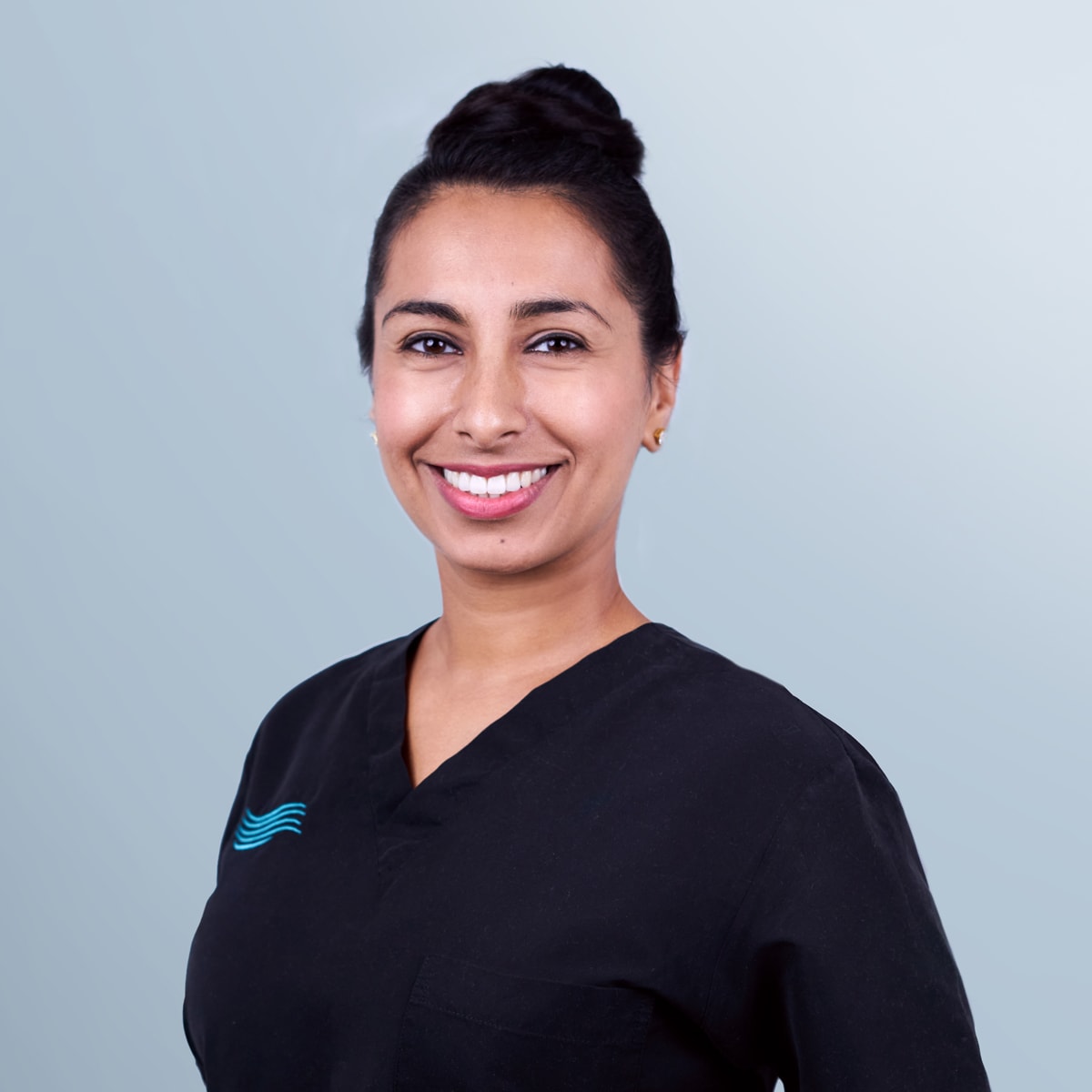
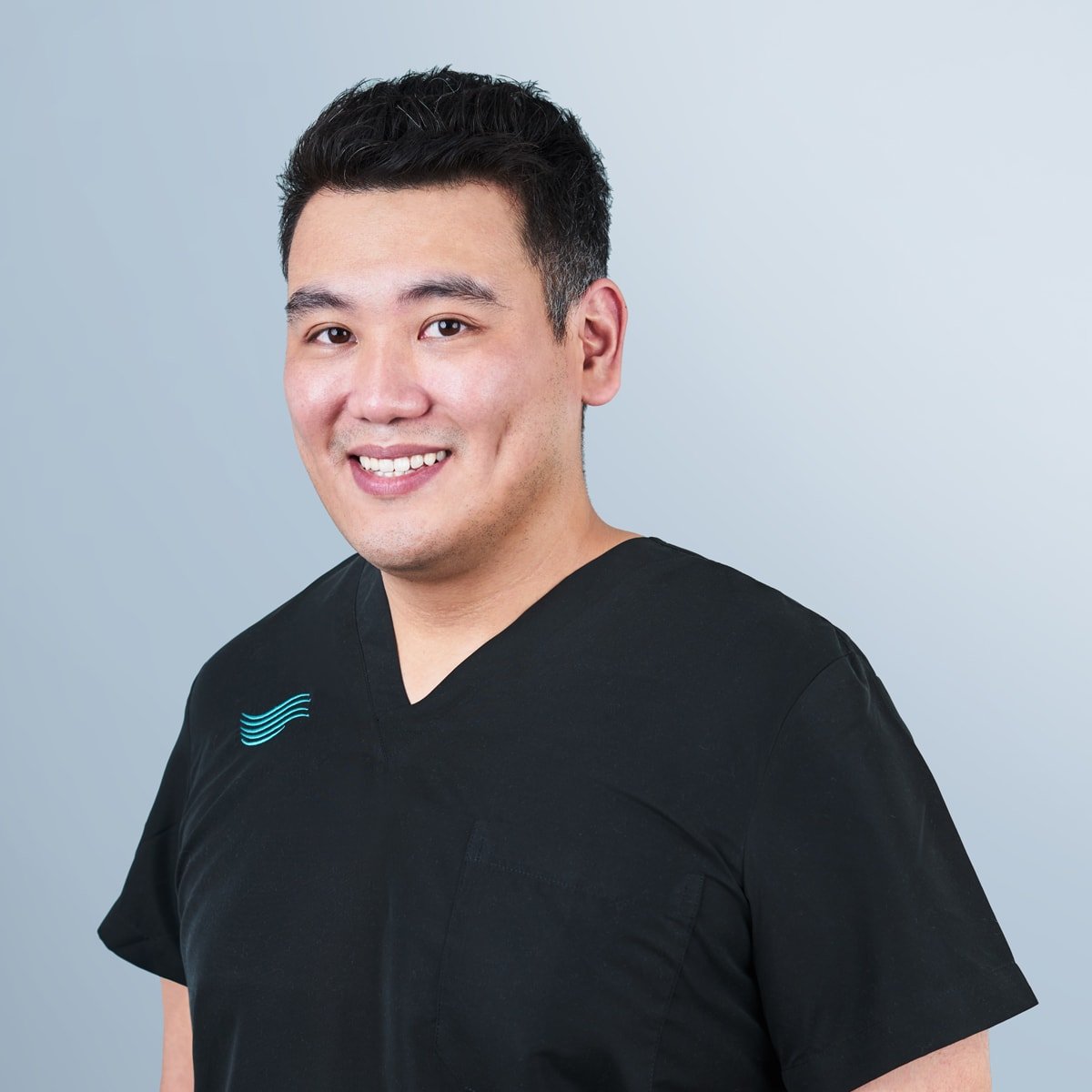







.png)

.png)



